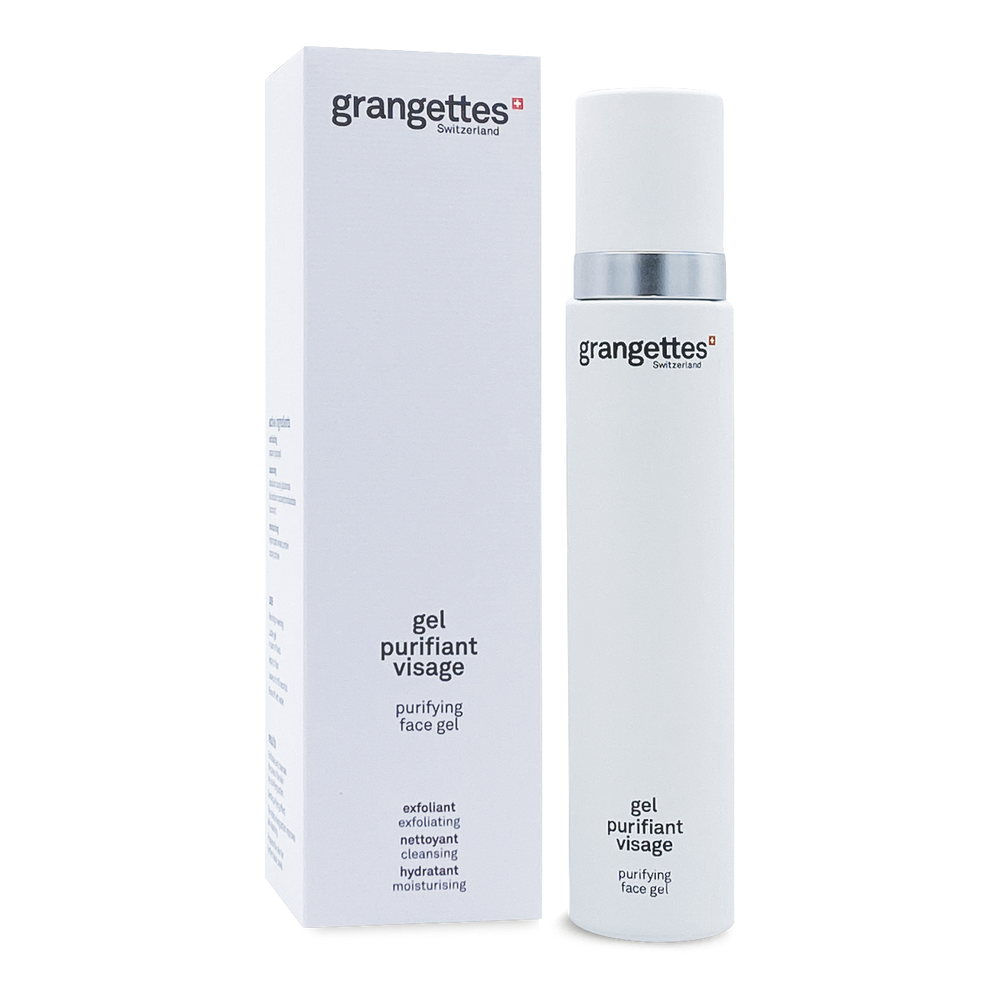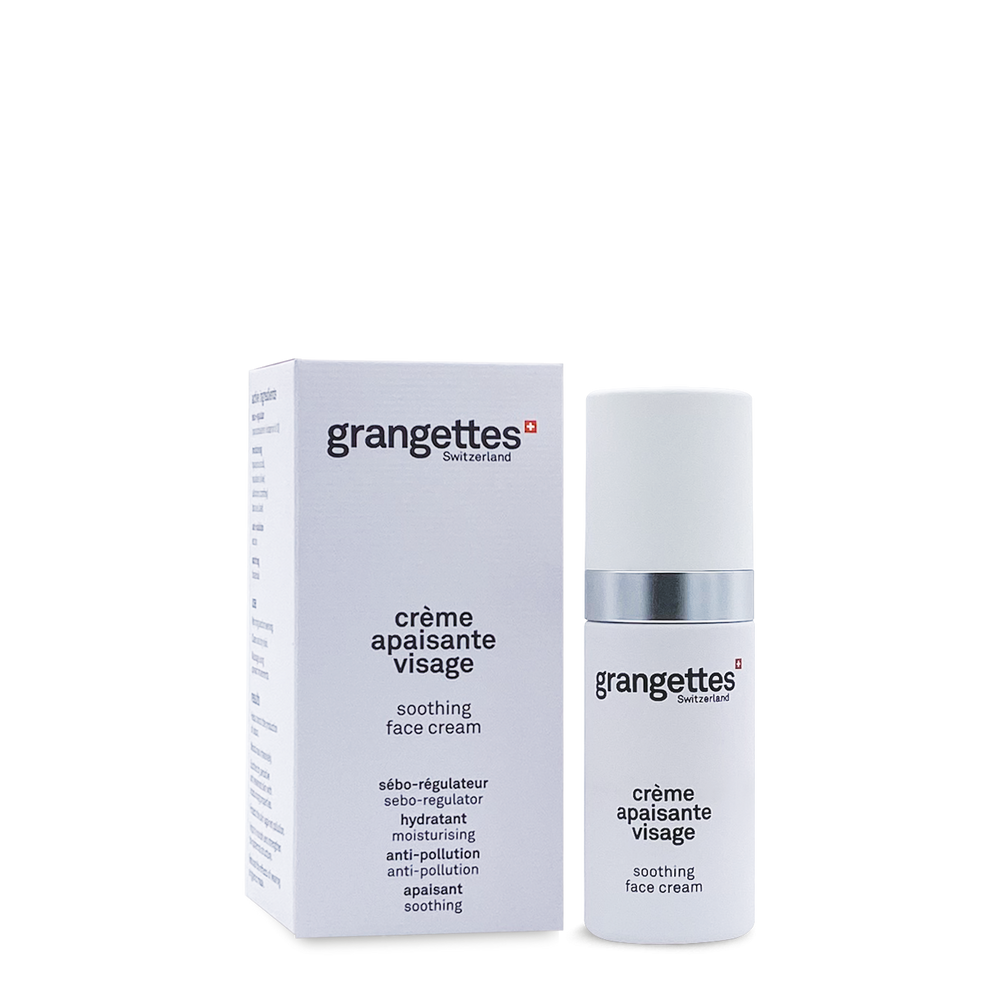Hypersensitive skin: what is it?
Skin is considered hypersensitive when it overreacts to stimuli that would not normally cause irritation to others. These stimuli may include:
- Skin care products: Certain ingredients, such as fragrances, dyes, preservatives, and alcohols can cause reactions in people who have hypersensitive skin;
- Environmental factors: temperature changes, wind, cold, heat, and pollution can irritate the skin;
- Hormonal changes: hormonal fluctuations, particularly during pregnancy or menopause, can make the skin more sensitive;
- Stress and emotion: Stress and strong emotions can also exacerbate the symptoms of hypersensitive skin.
Clean gently
If your skin is hypersensitive, avoid cleansing it with running water, as some skin is very reactive to limescale and chlorine, which can increase the feeling of discomfort. After cleansing your face, you can rinse it with a fine mist of thermal water: it will soothe and eliminate all traces of potentially irritating compounds.

To cleanse your skin, opt for hypoallergenic , fragrance-free and sulfate-free products. Choose cleansing products that have a soft texture such as purifying milk or gel , and apply them directly with your fingertips to avoid over-irritating the skin with a cotton pad or washcloth.
- Regular price
- CHF 36.00
- Regular price
- Sale price
- CHF 36.00
- Unit price
- per
What hydration for hypersensitive skin?
Good hydration is essential to maintain a healthy skin barrier. To choose the right moisturizer when you have hypersensitive skin, you must start by knowing your skin type (dry, oily or combination), then select a product specially designed for sensitive or reactive skin >.
Opt for a moisturizer that contains soothing ingredients like bisabolol , hyaluronic acid, shea butter, or allantoin . Avoid creams that contain harsh fragrances, dyes, or preservatives.
- Regular price
- CHF 35.00
- Regular price
- Sale price
- CHF 35.00
- Unit price
- per
What ingredients should you avoid in cosmetics?
Cosmetic analysis applications can help you choose cosmetic products that have a good composition. If you have hypersensitive skin, here is a quick overview of the ingredients that should be avoided at all costs:
- Perfumes and essential oils: Scented products, including those containing essential oils, can cause skin reactions on hypersensitive skin;
- Drying alcohols: certain alcohols, such as denatured alcohol, can dry and irritate the skin. Prefer products that contain fatty alcohols (such as cetearyl alcohol) which are generally better tolerated, because they soften the skin;
- Sulfates: Sulfates, such as sodium lauryl sulfate, can strip the skin's natural oils and cause irritation;
- Preservativeslike parabens and formaldehydes can be irritating. Opt for products that use gentler preservatives.
Manage stress to calm hypersensitive skin
Stress is an often overlooked but important factor in managing hypersensitive skin. It can trigger inflammatory reactions and worsen symptoms of skin hypersensitivity.
The idea? Adopt stress management techniques such as meditation, yoga, deep breathing, or regular physical activity to help calm the mind and body, and therefore, reduce skin breakouts.
Adapt your diet when you have hypersensitive skin
For people with hypersensitive skin, it is important to eat foods rich in antioxidants, such as fruits and vegetables, which help fight free radicals and reduce inflammation. Omega-3 fatty acids, found in oily fish, nuts, and flaxseed, can also help soothe the skin and reduce inflammatory reactions.

Avoid foods that may cause allergic reactions or intolerances, such as dairy, gluten, or strong spices, if you notice these trigger hypersensitivity symptoms.
Consult a dermatologist
If you have hypersensitive skin, do not hesitate to consult a dermatologist. A healthcare professional can help you determine the causes of your skin hypersensitivity and provide you with personalized treatment recommendations.
Use natural remedies with caution
While some natural remedies may be effective on certain skin types, it is essential to use them with caution. Always perform a test on a small area of your skin to check how it reacts, and seek advice from a dermatologist before incorporating a new natural remedy into your skincare routine. care.
Observe and listen to your skin
Every skin is unique, and what works for one person may not work for another. Pay attention to your skin's reactions and adjust your routine accordingly. Take note of any changes or improvements to better understand what works best for your hypersensitive skin.






